SLUBtutorials and SLUBcasts
For many topics, in addition to conventional courses and workshops, we also offer you freely available self-learning materials, including an increasing number in English. You can choose between detailed self-learning courses on OPAL (SLUBtutorials) and explanatory videos on youtube (SLUBcasts).
Compact knowledge: The SLUB (SLUBcast)
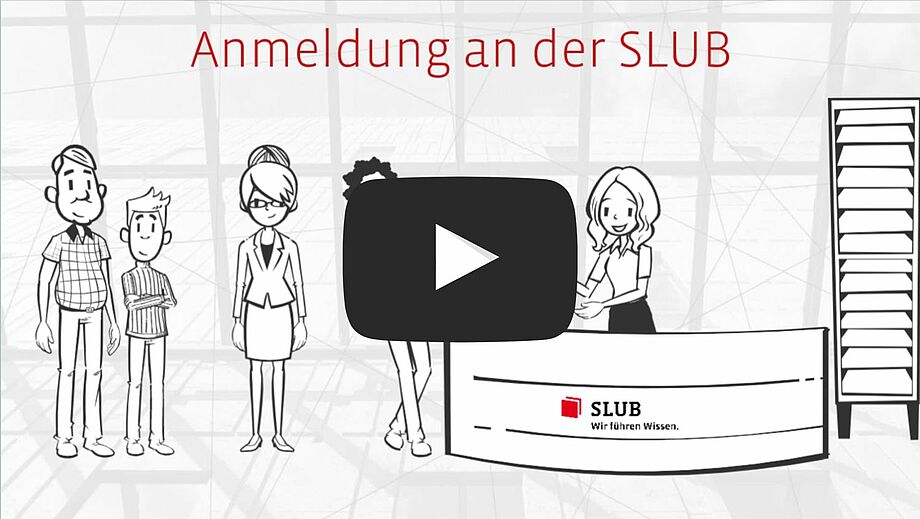
Are you new to the SLUB Dresden and don't know your way around yet? The SLUBcast Kompaktwissen: The SLUB provides you with all the important information about registration and our services in brief.
With SLUBcast - The SLUB: Step by step, an English-language version of this offer is also available to you.
The SLUB for beginners (SLUBtutorial)

In the e-tutorial SLUB for beginners you will get to know the SLUB and its services better. For example, we explain to you how to best proceed when searching the SLUB catalogue. You will also learn more about our diverse range of courses and advisory services that support you throughout your studies. And we introduce you to our locations in more detail, including the SLUB Makerspace and the SLUB TextLab as creative places to get involved.
With SLUB for beginners, an English-language version of this offer is also available to you.
From topic to full text - researching in subject databases (SLUBtutorial and workshop)
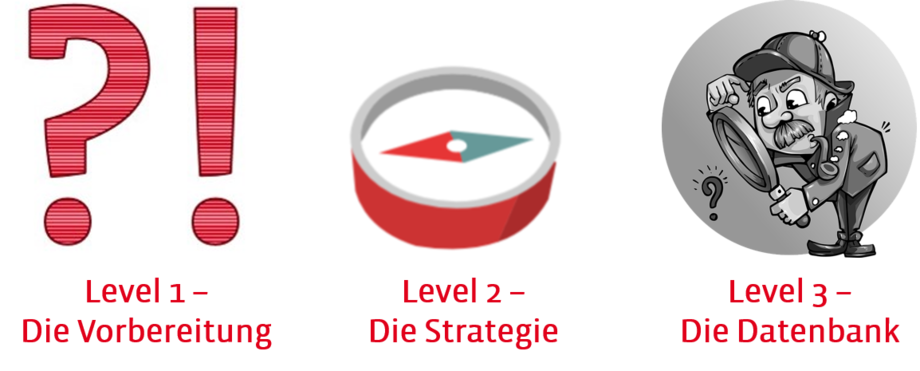
In the e-tutorial From topic to full text - researching in subject databases, you will learn how to prepare an efficient search and select the appropriate research tools. We also show you which search strategies are used when searching databases.
With From Topic to Full Text - Searching Subject Databases, an English-language version of this offer is also available.
The e-tutorial is supplemented by a regular workshop that takes place online and on site. Here you can try out your knowledge in practice and are supported with tips and tricks.
Record, manage and cite literature - basic knowledge of literature management programmes (SLUBtutorial)

In the e-tutorial Collecting, managing and citing literature - basic knowledge of literature management programmes, you will learn how literature management programmes can support you in your academic work, which programmes are available and how to find the right programme for you. In addition, the learning offer contains instructions and videos that will help you to familiarise yourself with the programmes Zotero and Citavi.
Citation instead of plagiarism - What, why and how to cite?! (SLUBtutorial)
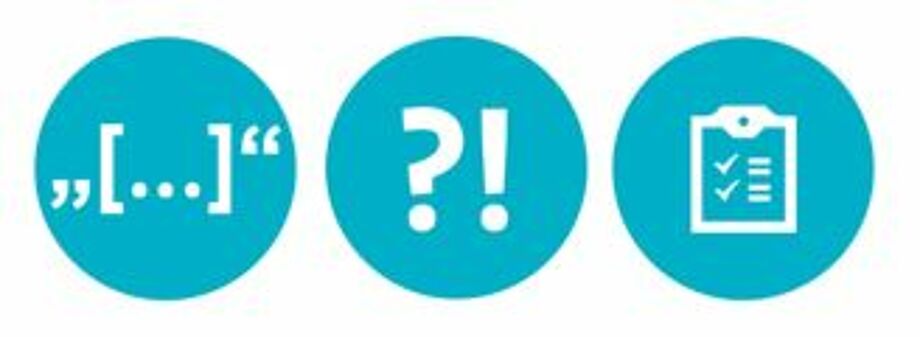
The e-tutorial Citations instead of plagiarism - What, why and how to cite sources?! teaches you why citations must be used in scientific papers, what can be cited, what must not be cited, and how to incorporate citations correctly into the text so that no plagiarism occurs.
With Citations and avoiding plagiarism - When, why, and how to cite sources? an English-language version of this offer is also available.
Scientific Citation (SLUBcast)
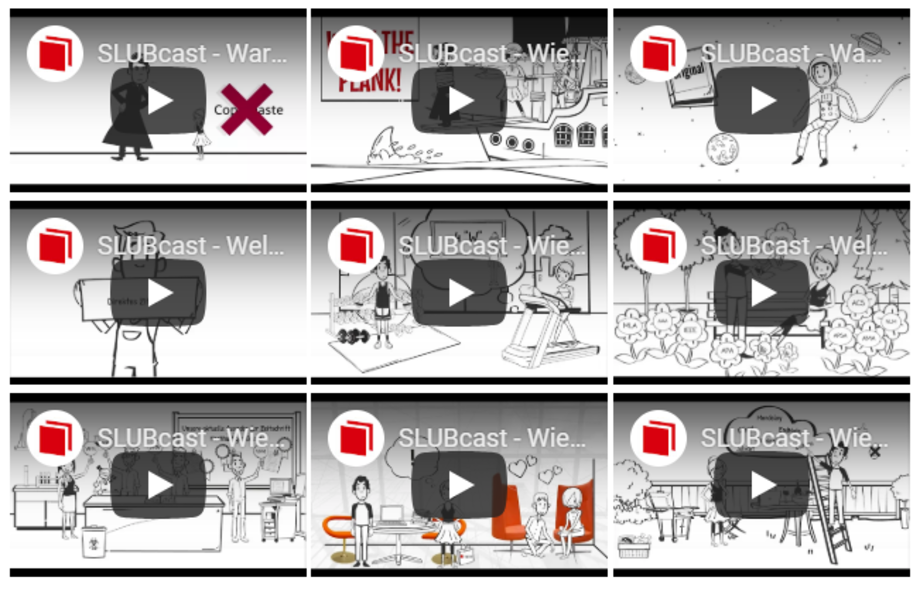
In the SLUBcast series Scientific Citation you will learn essential aspects of citation and good scientific practice in several short videos in an entertaining way with the help of the two fictional students Emma and Max.
With Citations and avoiding plagiarism, a version of this offer with English subtitles is also available.
Scientific Writing with Word (SLUBtutorial)

This course offer consists of three modules:
In the basic course Document Structure and Format Templates, we show you how to design the basic framework of your scientific document in just a few steps while always keeping the structure in mind.
In the advanced course Directories, Tables, Images, you will learn how to create directories in Word and design your document using tables, graphics and images.
In the expert module Reference, Correction, Central and Branch Documents you will learn how to insert footnotes, use cross-references, track changes and deal with central and branch documents.
After each major learning section, you will find the opportunity to practise. We have prepared exercises and corresponding sample solutions for you.
ORCID in practice - Your own ID visibility in a nutshell (SLUBtutorial)
Throughout the research process, it is becoming increasingly important to present yourself as well as your research work and institutional affiliation. But how do you make sure that your scientific publications can be attributed to you? The course ORCID in Practice. Your own ID visibility in a nutshell shows you step by step how to work effectively with your account after a successful registration in ORCID. The course also addresses concrete applications in the SLUB and TU context.
This offer is available in German and English. To change the course language, select the desired language under the left arrow at the top right on the start page.
Pre-registration of scientific studies (SLUBtutorial and SLUBcast)

In the SLUBtutorial Pre-registration of Scientific Studies you will learn how this practice helps to increase reproducibility and quality in research. The offer shows common problems in science and how preregistration can counteract them. It also provides guidance and recommendations on different methods and a collection of further resources.
With Preregistration of Scientific Studies, an English-language version of this offer is also available.
In addition, you can find the SLUBcast Preregistration and Registered Reports in the form of a presentation in English on our YouTube channel.
Introduction to XML and TEI (SLUBtutorial)

The six-part self-study course Introduction to XML and TEI helps beginners to develop an overview and basic understanding of the markup language XML and the XML application TEI. After the course, you will be able to integrate these tools into your future academic work.
Equipment licences for the SLUB Makerspace (SLUBtutorials and on-site training)
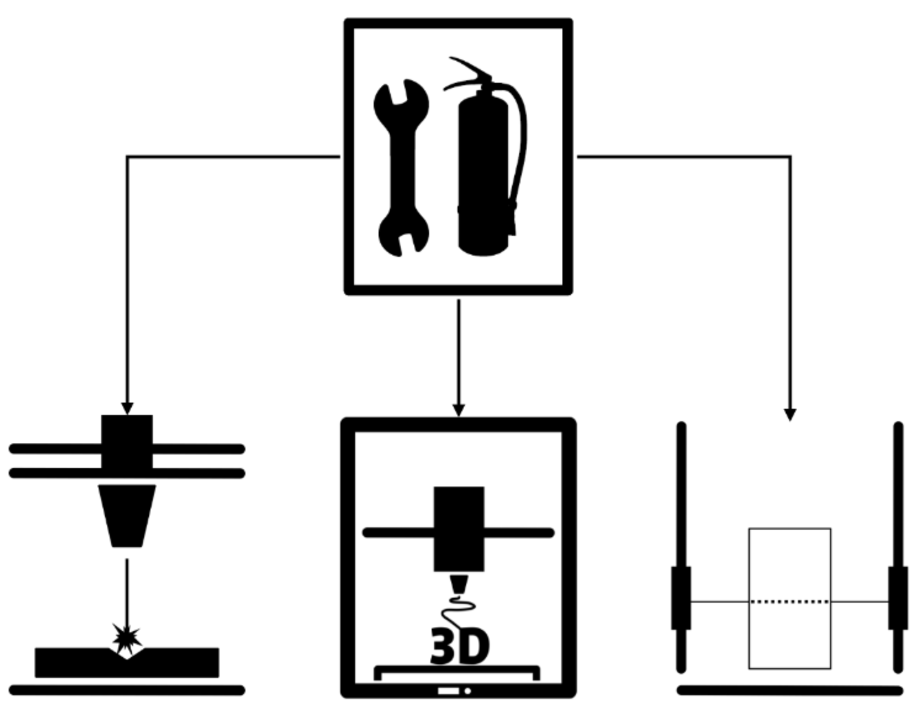
The SLUB Makerspace is an open creative space for people who want to realise their ideas and Do-It-Yourself projects. Numerous devices are available to you for this purpose. In order to use them independently, you need a device licence in some cases. You can obtain it by completing an SLUBtutorial and an additional on-site training.
From the idea to the subject-specific paper: Introduction to scientific work for pupils (SLUBtutorial + attendance module)
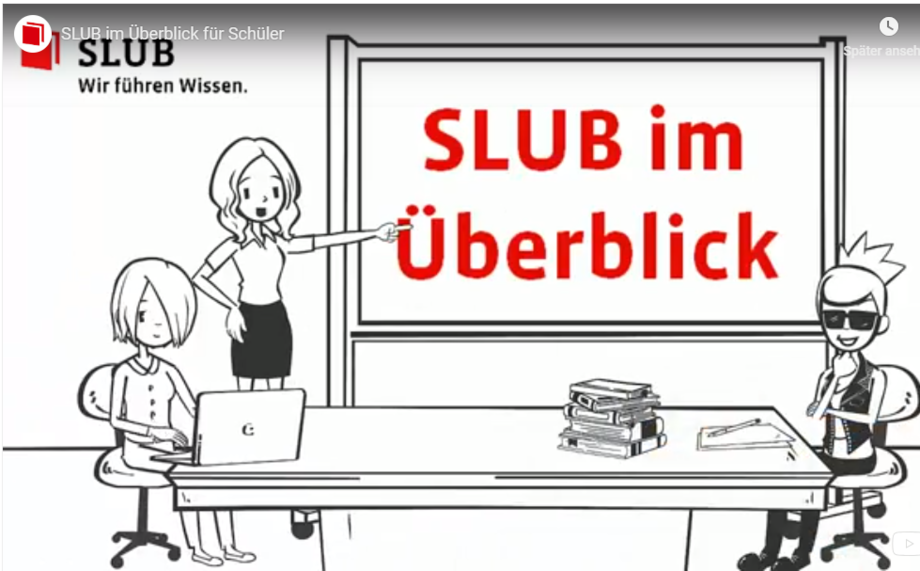
The blended-learning offer"From the idea to the subject-specific thesis: Introduction to scientific work for pupils" consists of three modules:
- The tutorial "SLUB at a glance" gives an introduction to the library and the SLUB catalogue.
- In the presence module "Scientific working techniques", participants learn, among other things, how to find and narrow down a topic, how to structure a subject-related paper and how to proceed with research. This is also an opportunity to gain initial experience in practical exercises. Teachers can find the working materials for the module directly in OPAL, so this module can also be carried out at school.
- Afterwards, the tutorial "Citing correctly" gives an overview of what is important when dealing with copyrights.
Präsentationen vergangener Coffee Talks

Ein Kaffee, zehn Minuten, ein Thema: unsere SLUB Coffee Talks sind kurzweilige Präsentationen über wissenschaftliche Themen, Services der Bibliothek oder Tipps und Tools rund um das wissenschaftliche Arbeiten. Die Veranstaltungen im Foyer der SLUB finden während der Vorlesungszeit der TU Dresden donnerstags um 13.30 Uhr im Foyer der Zentralbibliothek der SLUB Dresden (Zellescher Weg 18) statt.
Ausgewählte Präsentationen vergangener Coffee Talks zum Nachlesen finden Sie in diesem SLUBtutorial auf OPAL.
Your contact to us
Would you like to know more about specific topics in our tutorials? Send us an email with your request.